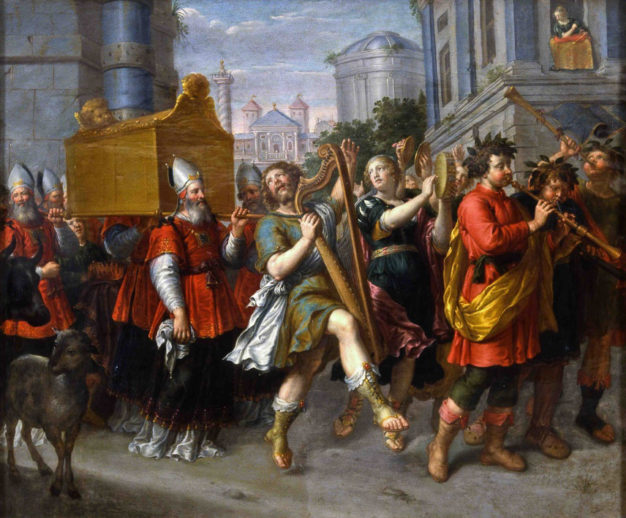

Why Do We Sing?
“Sing aloud, O daughter of Zion;
shout, O Israel!
Rejoice and exult with all your heart,
O daughter of Jerusalem!
The LORD has taken away the judgments against you;
he has cleared away your enemies.
The King of Israel, the LORD, is in your midst;
you shall never again fear evil.
On that day it shall be said to Jerusalem:
‘Fear not, O Zion;
Let not your hands grow weak.
The LORD your God is in your midst,
A mighty one who will save;
he will rejoice over you with gladness;
he will quiet you by his love,
he will exult over you with loud singing.’”
Zephaniah 3:14-17
Tucked in at the end of Zephaniah is a beautifully poetic description of our call to worship. Why do we sing? We sing because the LORD has taken away the judgments that condemned us, and we are no longer slaves to sin. Our enemies have been cleared away, and we can rejoice knowing that we have victory in Christ. The Holy Spirit of God has come to dwell in our very hearts, and we need not fear evil any longer. Therefore we are commanded: Sing aloud! Shout! Rejoice and exult with all your heart! In Psalm 81, Asaph tells us that singing and making music is “a statute for Israel, a rule of the God of Jacob.” According to the Scriptures, singing is not optional if you belong to the kingdom of God.
We, however, are not the first to sing. The LORD in our midst sings over us, he rejoices over us, Zephaniah even says that “he will exult over you with loud singing.” How often has it been described of Christ Church Anglican that we exult with loud singing? Perhaps many of us are uncomfortable rejoicing in the exuberant manner described, and yet we know that we are called to be like God, and here we are told that God sings loudly over us, rejoicing in his gladness. When Christ enters triumphantly into Jerusalem before his death, the “whole multitude of his disciples” does exactly that: they “began to rejoice and praise God with a loud voice for all the mighty works that they had seen.” Luke tells us in his gospel that this made some of the Pharisees so uncomfortable that they asked Jesus to rebuke his disciples. His response to them is startling: “I tell you, if these were silent, the very stones would cry out” (Luke 19:40).
If we, then, belong to God’s people and have been changed and transformed, the most fitting response we can give is our worship. Paul tells the Ephesians to be filled with the Spirit, to address each other in “psalms and hymns and spiritual songs, singing and making melody to the Lord with your heart, giving thanks always and for everything to God the Father in the name of our Lord Jesus Christ” (Ephesians 5:18-20). Singing together is part of the work of imitating God and walking in love within Christian community, and it is part of what Paul describes as “making the best use of the time, because the days are evil” (verse 16).
This seems like a strange connection. After an admonition to “look carefully how you walk,” and not to get drunk on wine, Paul tells believers to be filled with the Spirit and to sing. Why is singing part of walking wisely in these evil days? Orthodox theologian Alexander Schmemann described the essential nature of modern secularism as, “above all, a negation of worship. . . It is a negation of man as a worshiping being, as homo adorans: the one for whom worship is the essential act which both ‘posits’ his humanity and fulfills it.” (Worship in the Secular Age, 1971). To sing in praise then is fundamentally part of what it means to be human, and further, is one of the most counter-cultural acts of the Christian. In an age that denies the worship of God, let us be a people of singing, of skillful music-making, of rejoicing, and of loud exaltation in the glorious work of our Lord.
“May the God of endurance and encouragement grant you to live in such harmony with one another, in accord with Christ Jesus, that together you may with one voice glorify the God and Father of our Lord Jesus Christ.” (Romans 15:5-6)
In Christ,
Jessica Hodge
Music Ministry
Artwork: A singing and dancing David leads the Ark of the Covenant, attributed to Pieter van Lint, c. 1650
Resources for singing the psalms:
- The Seedbed Psalter (especially helpful for those who are not musically trained)
- Trinity Psalter Hymnal online
